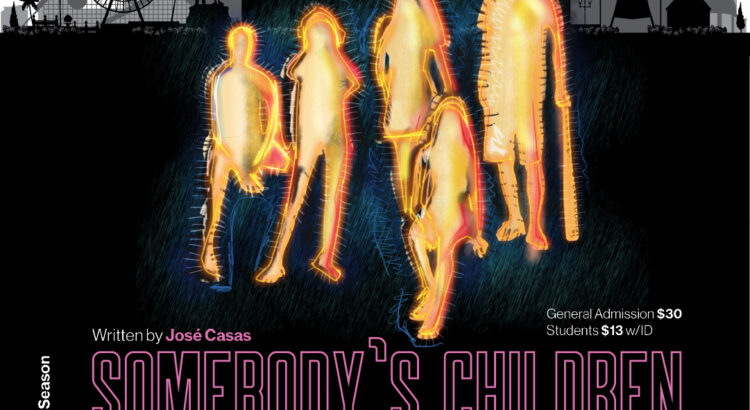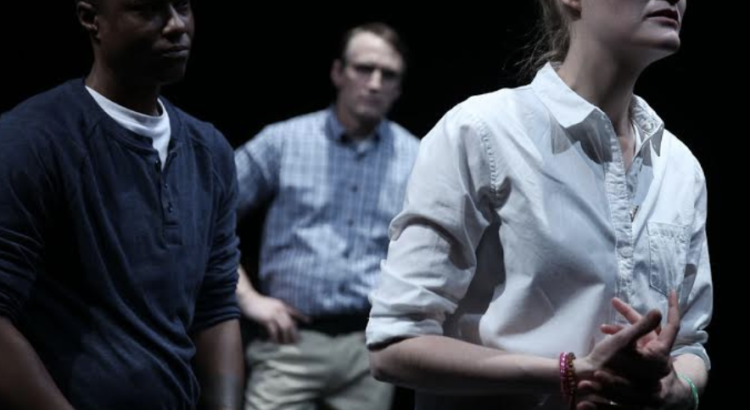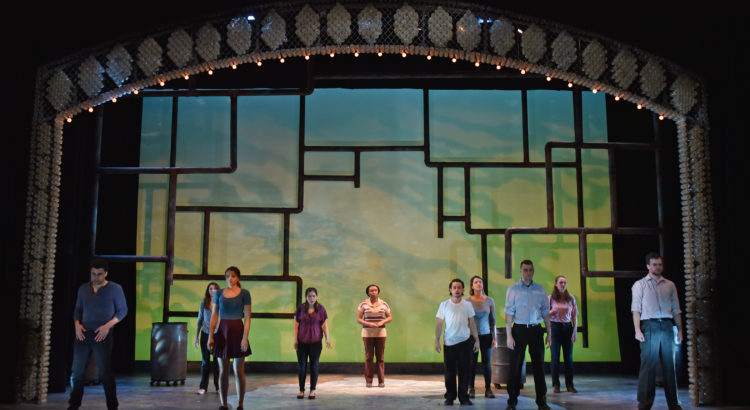SMTD’s production of Water by the Spoonful soared beyond all expectations; it went beyond a simple examination of addiction, familial dysfunction, and the human burdens accompanying both, and instead quivered in an unwavering state of compassion, warming my heart in counterbalance. Quiara Alegría Hudes’ Pulitzer Prize-winning play proved to be as patiently restorative as the the metaphor in which its name is based upon – the title refers to a method of hydrating sick children, in which the caretaker must sustain the child with spoonful-sized dosages of water, spaced five minutes apart. If improperly executed, the results can be devastating; Hudes’ work carries an undercurrent of this metaphor throughout. The characters in the plot, be they recovering addicts, mourners, or both, must likewise learn to sustain their individual burdens within life’s fragile constraints, while recognizing the healing properties of interpersonal support and forgiveness.
I perceived the play to be pretty nonlinear; it was only after Yazmin’s monologue about the necessity of ‘dissonance’ that the scenes and characters gradually unveiled themselves to be far more interconnected than their initial, disparate origins. Indeed, the concept of dissonance through Yazmin’s terms clarified my understanding of the play; on the surface, the eccentric crack-addicts interacting within the support chatroom, Ginny’s death, and her two very different mourning relatives seemed dissonant, like chess pieces moving in no relation to one another. Yet it was about halfway through that I conceived of more than just a community death connecting each character’s stories. Rather, the addicts and the Ortiz family are practically interwoven, not only in narrative but also resolved in the sense of universal yearning, grief, and overall, a collective search for harmony.
“Dissonance is still a gateway to resolution.” – Quiara Alegría Hudes, Water by the Spoonful
Beyond the heartwarming characters and SMTD’s moving portrayals of them, I particularly enjoyed the production’s sound and set designs and the little details included in such that effectively highlighted the pure human emotionality running through the piece. Though Hudes writes Water by the Spoonful with dissonance and John Coltrane’s uninhibited jazz music in mind, the sound designers working on this production incorporated these musical concepts especially well in the play’s most emotionally charged moments – like Odessa’s overdose and the abrupt endings of multiple chatroom arguments. In addition, the set designers managed to transform the space from scene-to-scene into vastly different simulated environments, through multiple wheeled components, which I thought was consistently convincing and effective. After all, how does one spatially represent the cyberspace and how people would interact within a “chatroom”?
SMTD’s Water by the Spoonful will be on show at the Arthur Miller Theatre until November 17; I highly recommend going if you have the chance!







